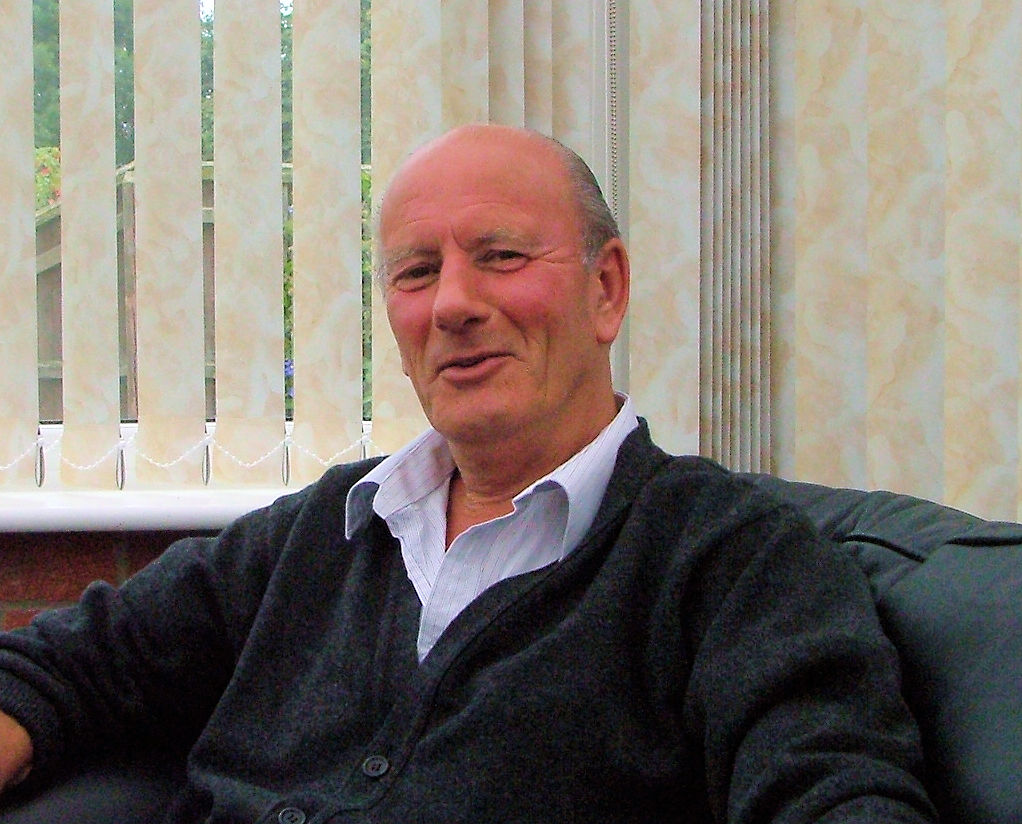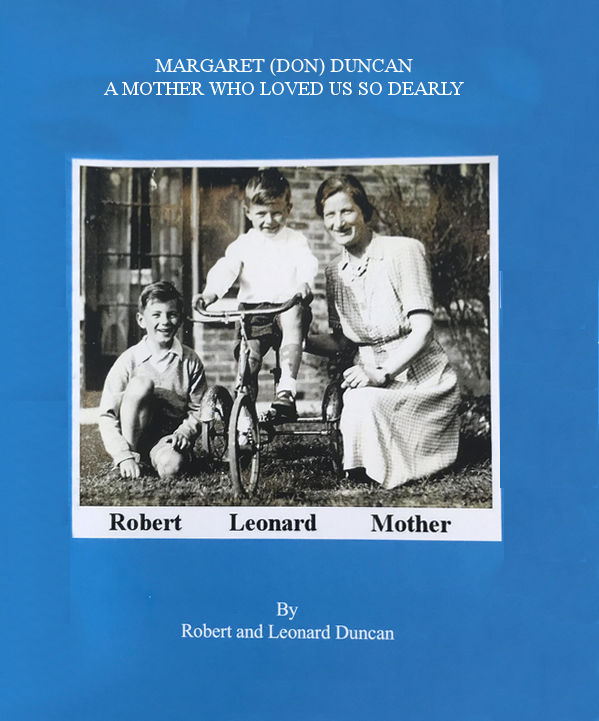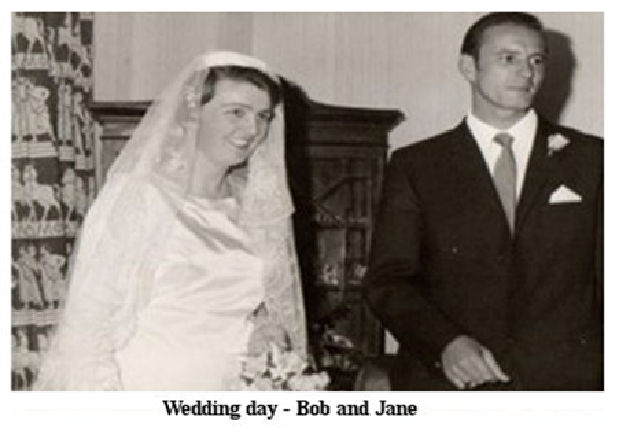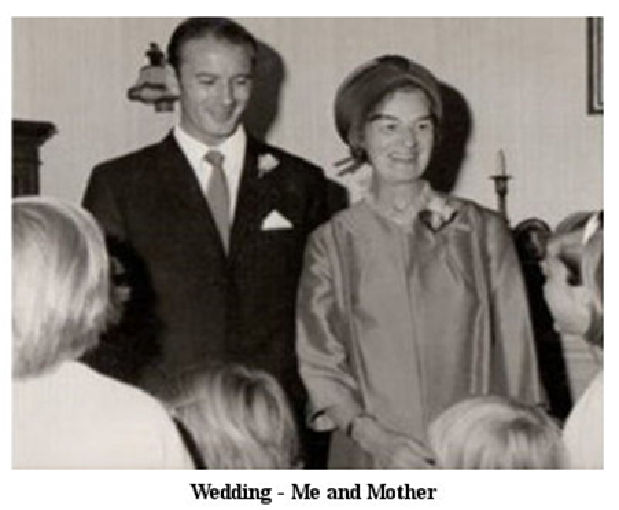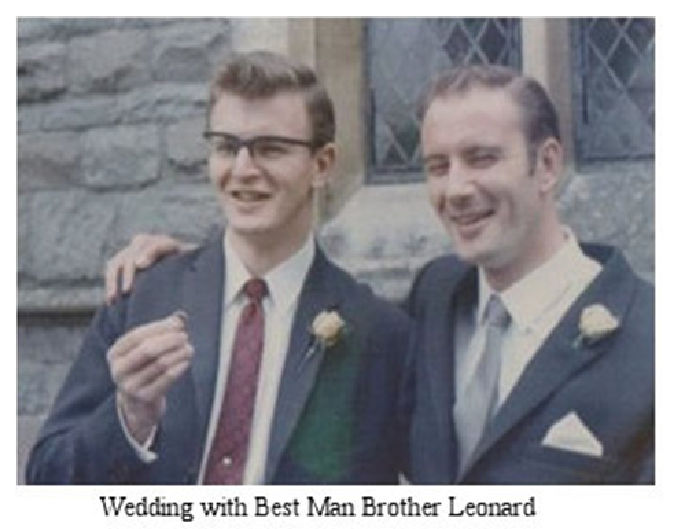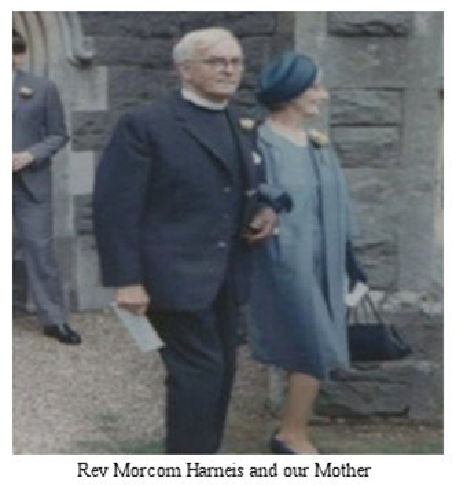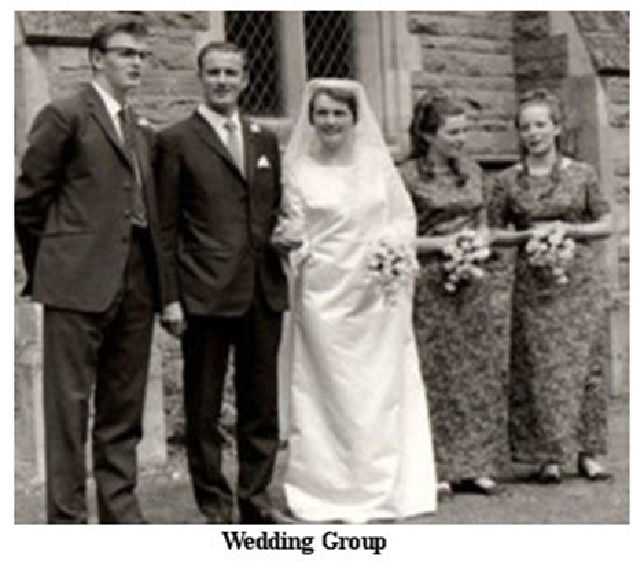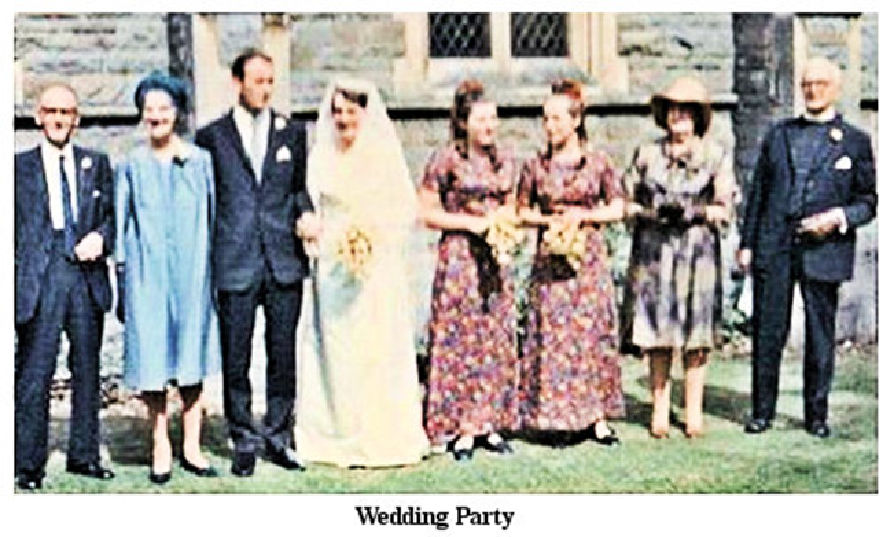Founded 1980
Chair:
Secretary:
Treasurer:
Graham Smith
Jan Thompson
Graham Mumby-Croft
THE WEDDING
The wedding had now been planned, it was to be on a Sunday as Kent County Cricket Club where in the final of the Gillette Cup on the Saturday and I had tickets. This was not a problem as Father-in-Law to be was a Vicar in Littlewick Green with a large manse next door to the Church and a splendid back lawn which was quite cable of holding a good size marquee and still space to mingle. Also, I had chaplains from the Service on tap if necessary. The last exam finished on Thursday; I was passed a message by one of the tutors at lunchtime to say that I was going to a Borstal in Yorkshire called Pollington. There was little time to do much about that but at last, I knew where we were headed after the Honeymoon.
I had travelled up to Littlewick Green with my mother the previous night and we had a splendid meal at the rectory. It was a bright sunny day for the wedding which went well including singing ‘Lord of the Dance,’ as Jane’s father had initially queried whether it was appropriate; all the other music apart from the traditional hymns was from West Side Story.
Jane’s father had been a vicar in the East End of London during the war period and made a habit of visiting as many in his parish as possible. He came across two young ladies from Belgium who were living in temporary accommodation with very few basic appliances. He arranged for various basic articles to be provided. They both spoke very good English and had been sent by their well-to-do parents due to the German occupation of Belgium. One of them was employed by the BBC Overseas Broadcasting to speak to France and Belgium. They became very close friends of the family, and after the war, Jane used to visit them in Belgium. Jane’s father was injured by a bomb blast during a raid by German bombers; he was in a bad way and rushed to the hospital. Penicillin which was developed in the USA was at its early experimental days, and not widely in use in Britain.
As Pa had medical doctors in the family line, it was decided that it should be used in his case. That helped to save his life, but he retained permanent injuries and always wore a glove on his damaged hand. He returned to work eventually, but in the leafier environment of Littlewick Green.
The family in Belgium were financially well off. Madame Snoeck’s husband had been a banker, and a young man came to him looking for investment in camera film he had invented, he needed capital to market it. He invested some of his own money and it had paid off. They lived in a very pleasant house in La Hulpe, south of Brussels near Waterloo with a large garden and its own tennis court. One of the daughters was for a while a tour operator and spoke at least 8 languages fluently. She was also involved in the Church where the priest had been under training when the Germans had invaded and occupied Belgium. His younger brother had been in the ‘resistance’ and was involved in blowing up railway lines. Unfortunately, he was betrayed and taken into custody by the local police. The Gestapo had not been involved at this stage, so his elder brother went to persuade the police to release him into his custody, as a potential priest, his claim that his brother would not be involved in acts of sabotage anymore was somehow persuasive and he was released. They remained fearful of his future and the brother was hidden in an attic room and watched over constantly for the rest of the war. From Dover, it was an easy trip over, and we went to stay with them on several occasions. Their children would come and stay with Jane in Dover, and I would assist with trips out in the car. It became the base later for longer trips in Europe. Jane had planned all the arrangements for the wedding and for the Honeymoon. I still had the flat in Dover; it was planned that we would arrive there late in the day, to spend the first night there secretly: it did not work like that. As the flat had been empty for a while, perhaps it felt damp, I do not recall. All I remember is that Jane switched every light on and both electric fires and the kettle, next moment we were in darkness as she had blown the fuse. I had to knock up a discreet colleague and ask to borrow a torch and some fuse wire. Next day we travelled to the friends in Ohain in Belgium for one night and they arranged for us to put the car on the night train to Austria, where it would unload us at Villach near the Ossiacher See. (A town I loved as I had travelled there previously by train to attend an ecumenical Christian conference on the lake shores.) I had swum in the lake; it was very cold but refreshing.
We then drove to Vienna where Jane had booked the hotel near the famous Prater Amusement Park in the Leopoldstadt part of Vienna. We booked in and were surprised when we were informed we had two single rooms. Jane queried this but was told that is what is booked, and the hotel is full and not possible to change. I slept well! We took a boat trip on the Danube which played the Blue Danube Waltz throughout the trip which became a bit overwhelming as the Danube was not blue, but a murky brown and the scenery became tedious. But it was an experience. I managed to obtain tickets for the Opera House in Vienna. It was a Mozart opera, but I cannot recall which one, but it was one I did not know at the time. That’s OK, I thought at the time. I will get an English copy of the programme and read the summary. We were held up over the evening meal and arrived a little later than planned, so decided I could read it at the interval. I had forgotten it is a tradition in Austria to play the whole opera through with no interval. It did not really matter as it is the total atmosphere of singing, acting and orchestra that enthralls you. I can remember going to Covent Garden with my close friend David Greenaway in 1972 to see the famous Beethoven specialist, Otto Klemperer, then in his 80s’, conduct Fidelio. We had a small box seating directly over the orchestra, but still a good view of the stage. It was announced that due to frailty Otto would conduct throughout seated. Which he did, until the Opera was racing towards its crescendo, he raised himself to his full height and conducted with total vigour to its tragic end. The audience all rose to their feet and it felt the applause would never cease. That is the magic of opera.
Now it was time to travel back towards the motorway. It was a bright sunshine day, and as we passed through a delightful valley with a traditional Austrian guest house, with lots of people eating in the beer garden. We decided we would do the same and had a very good lunch. Being in no hurry we asked about accommodation and decided to stay two nights. After the heat of the day, we did not anticipate how cold it would be at night, it was so cold we donned every bit of clothing we could manage, including anoraks and only then did we get a little sleep. Nor was the evening meal the next day at the same standard, Sunday was clearly their speciality day.
Jane another year decided she would like to travel to Yugoslavia and visit Dubrovnik, the Potsjama Caves and Plitvick Lakes. So after a few days in Belgium, we set off for Dubrovnik. Jane had bought a new tent and kept informing me how very simple it was to erect that one person could do it easily. When we had reached the campsite for our first stop the tent was unloaded and Jane commenced the operation, I took it out of the car and one of the folding chairs from the car and sat to watch. Jane looked over and said, ‘you do not plan to help?’ ‘No,’ I said, ‘I am intrigued to watch this simple one-person operation in practice.’ It did not appear to be as simple as claimed. So I considered perhaps I ought to help, but before I made a move, two Dutch young campers came over and erected it in no time. I thought that was a nice twist that I might try again, but from the glares I got from Jane, I decided perhaps not!
Next day we drove in bright hot sunshine down the coastal highway, which is very twisty for most of its length so not quick and kept seeing lovely bays with the blue sea, but saw no access down and we also needed to get to our destination. On arrival in Dubrovnik, I was amazed I could park the car within 20 yds of the city walls with no charge. It would never happen again. On the return on the way back up the coastal road, we spotted a lovely bay with a peninsular jutting out into the sea with camping facilities, so we erected the tent there in the evening sunshine on the peninsular for an overnight stay. Halfway through the night, there was a huge storm with torrential rain and fierce winds, I feared the tent would be blown away, so had to go out in all to ensure the tent was securely fixed down. We did not get much sleep that night.
Continuing up the coast we now found that the road was littered with fallen chalk, and as it was a twisty road one had to drive with caution to avoid hitting a rockfall around the next bend. It was only a 2-lane road, and the scariest moment was when we rounded a sharp bend and almost hit a car and caravan just abandoned across the road! We made progress and knew we had to turn inland to reach our next destination and were amazed to find what looked like a brand-new tarmac road cutting through the hills, so we began to ascend. After about a mile we found a barrier across the road and an ancient local in an animal skin coat, waving to us to stop. Sign language indicated that if we crossed his hand with money, he would both allow and direct us down a track that joined the road at this juncture. It was in fact just a logging track created by the lorries that removed felled timber from what was a vast forest. We settled up, not realizing how bad the track was. It went on for about 28 miles and must have taken over 3 hours to traverse whilst giving us a constant shake up all the way. That meant we were behind schedule and it was beginning to get dark, but it did take us to the road we needed. It then started to rain heavily and get very dark so was driving on headlights when we reached a section of the road where thousands of yellow-coloured frogs were pouring over the road; there was no way of missing hitting some unless we stopped, but we had no idea how long it would on for, and we were already running very late, so I drove on very slowly, but knew some frogs must have perished. I still remember it clearly today.
We were pleased that we had booked accommodation there in advance and did not have to pitch the tent. Next morning started bright and sunny, ideal for viewing the vast expanse of the Plitvice Lakes. At that time you just bought tickets, were given a map, and left to wander at will. The area is very extensive and very beautiful and as it had rained the previous day the river’s little waterfalls were running freely, and the lakes were full. We did a full circuit, but halfway it began to drizzle, and a thick mist descended. I had taken a lower path and I heard Jane shout ‘I am lost, come and find me we need to get back to the entrance.’ Visiting again many years later you had to be in a group and led by a guide. It was a set route and you only stopped when the guide decided.
PART ELEVEN of BOB’s MEMOIRS WILL BE PUBLISHED IN ISSUE No 94, SPRING 2026
Autobiography.


